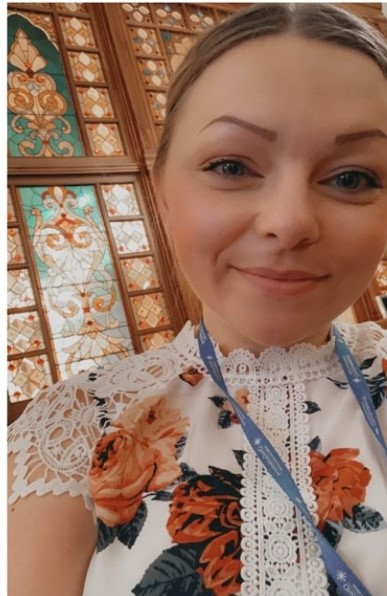Peer Support Fuels Recovery Plan
Peer Support and Substance Use
Peer Support is often a vital piece in treatment for substance use. Trust comes more quickly from someone who’s been there like OhioGuidestone Peer Support Specialist Courtney Simmons who credits her own Peer Supporter for showing her a path to recovery.

When she told me she was going to walk with me into my journey in recovery, I instantly felt a sense of relief, I felt safe. I felt understood for the first time in a long time. It made me think maybe I really can do this.
Courtney Simmons, Peer Support Specialist
Courtney’s Story
My time spent in substance use treatment was an eye-opening, life changing experience.
It inspired me to find a way to show individuals in recovery, and those still struggling – compassion, understanding and hope.
During my stay in inpatient treatment, my counselors and case managers were supportive, gave me guidance and showed me compassion and understanding, but it still felt like there was something missing.
I wasn’t reaching the level of connection that I was seeking. I had an underlying feeling of being judged by opening up to my counselor and case manager about my lived experiences while in active addiction. (Although, my counselor or case manager had never expressed judgement towards me.)
I needed someone I could relate to, someone who could relate to me, someone who had been through the same thing I was going through in that moment.
During this time, I didn’t know what a Peer Recovery Supporter was, who they were, or what they did. I was introduced to my Peer Supporter while staying at the inpatient facility, she shared a part of her story with me, her struggles and successes.
She told me that she herself was in recovery and had been a patient at the same facility we were in, detoxing from alcohol. She told me a bit about herself and what her role was as my peer supporter.
When she told me she was going to walk with me into my journey in recovery, I instantly felt a sense of relief, I felt safe. I felt understood for the first time in a long time. It made me think maybe I really can do this.
A part of the recovery process is giving back to the community.
Being a Peer Recovery Supporter is one way that I can do my part in giving back to the community.
Peer recovery support works to build empathy and understanding with clients. We build trust and develop healthy relationships.
Having a peer support provides a sense of community, together you surround yourself with non-judgmental individuals who want to see you succeed in your recovery.
I hope to make small impacts on each person I meet in my recovery journey to help break the stigma of addiction.
I am living proof that even through the darkest of times, if you never give up, you can reach the light at the end of the tunnel. There is a better way of life and RECOVERY IS POSSIBLE.

Courtney Simmons Joined OhioGuidestone as a Peer Support Specialist March 11th, 2024. She had been a stay-at-home-mom caring for her 3-year-old son.
Courtney plans to advance her training through OhioGuidestone and earn her CDCA. Her goal is to work with children and gain a better understanding of the development of substance use disorders in youth.
I am excited to see where I will be 5 years from now, especially after thinking about where I was 5 years ago from today. -Courtney Simmons
Peer Support vs Therapists
The role of a peer support worker complements but does not duplicate or replace the roles of therapists, case managers, and other members of a treatment team. Peer support workers bring their own personal knowledge of what it is like to live and thrive with mental
SAMHSA.gov
health conditions and substance use disorders. They support people’s progress towards recovery and self-determined lives by sharing vital experiential information and real
examples of the power of recovery. The sense of mutuality created through thoughtful sharing of experience is influential in modeling recovery and offering hope.




